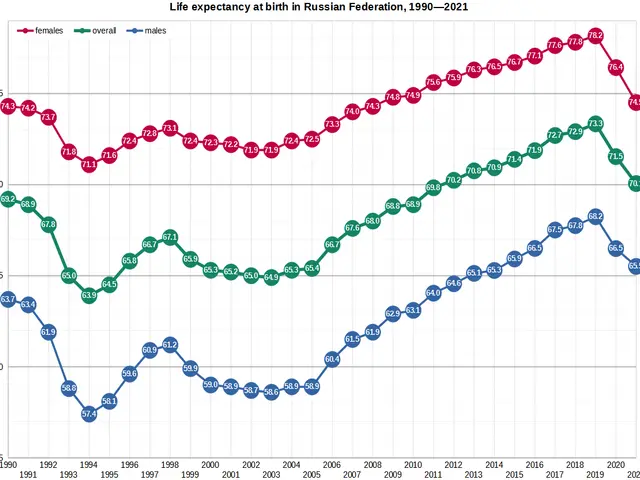Boeing's Struggle to Deliver Jets to Chinese Airlines Amid Trade War Chaos
Boeing does not anticipate a trade conflict with China impeding its recuperation pace.
The U.S.-China trade war has hit Boeing hard, hindering the delivery of their jets to Chinese airlines. Here's the lowdown:
- China's Aggressive Response:
- Chinese authorities have ordered their domestic airlines to refuse Boeing plane deliveries.
- China's retaliation follows the U.S.'s steep tariffs on Chinese goods, making them unaffordable for Chinese airlines.
- Scheduled Deliveries at Stake:
- Boeing had planned to deliver around 10 737 Max aircraft to major Chinese carriers like China Southern Airlines, Air China, and Xiamen Airlines.
- Tariffs Bite Hard:
- The Chinese government has increased tariffs on U.S. goods, including aircraft, to a massive 125%.
- This makes U.S.-made planes dangerously expensive for Chinese airlines, potentially jeopardizing sales.
- New Markets on the Horizon:
- With Chinese airlines refusing Boeing jets, the company might need to find alternative buyers to minimize losses.
- Some planes might still be delivered if the necessary paperwork was completed before the trade war escalated.
- Global Aviation Market Impact:
- Shifting Boeing aircraft to other markets could reshape global aviation demand and supply patterns.
- It could also provide opportunities for non-Chinese airlines to acquire these planes, potentially altering their fleets and strategies.
To sum up, the U.S.-China trade war has caused a major headache for Boeing, as deliveries to Chinese airlines come to a halt. With alternative markets on the horizon, the aviation giant is navigating choppy waters to maintain production and sales.
[1] Based on information from enrichment sources.
- The national aerospace industry, including Boeing, is facing an unfortunate predicament due to the escalating trade war with China, as the environment for business becomes increasingly challenging.
- Amid this uncertainty, artificial intelligence could play a crucial role in predicting the impact of tariffs on the world trade landscape, helping exporters prepare for potential changes in demand and strategy.
- Chinese authorities have redirected their focus on domestic manufacturers, strengthening their own industry finance and positioning themselves as reliable suppliers for local airlines.
- The financial sector is closely monitoring the impact of this trade war on companies like Boeing, assessing long-term repercussions for both the U.S. and global economies.
- As Boeing struggles to maintain sales in the Chinese market, European aircraft manufacturers may capitalize on the opportunity to expand their presence in world trade, potentially stealing market share from U.S.-based companies.
- The aviation industry as a whole must adapt to these changes, reassessing their relationships with key export markets and finding innovative solutions to ensure competitive edge in a rapidly evolving global landscape.
- Ultimately, a resolution to the trade war between the U.S. and China could pave the way for a return to normalcy, allowing Boeing to resume deliveries of jets to Chinese airlines and restoring balance in the world trade of aircraft.








